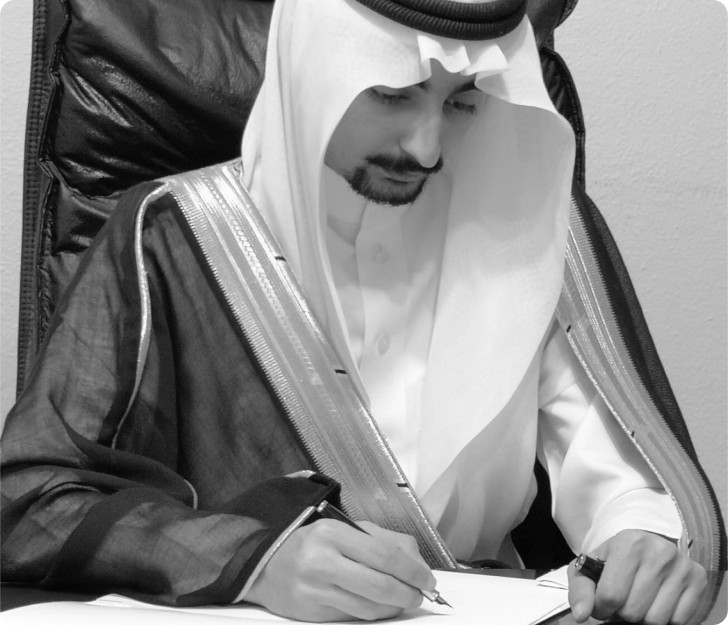Environmental Regulations in Saudi Real Estate Development You Should Know
Saudi Real Estate Development with Environmental Compliance
Environmental regulations have become an essential consideration in the Saudi real estate sector. With the Kingdom poised for unprecedented growth, real estate developers and investors must be well-versed in environmental laws to ensure that their projects are sustainable and compliant.
The real estate attorney at Khalaf Bandar Law Firm can shed light on the critical environmental regulations in Saudi Arabia that impact real estate development. This way, we can help business owners and investors make informed decisions.
Environmental Regulations in Saudi Real Estate You Need to Know
In recent years, Saudi Arabia has taken significant steps to protect its environment while fostering economic development. The introduction of stringent environmental regulations reflects the Kingdom’s commitment to sustainable growth. These regulations aim to minimize the environmental impact of real estate projects while ensuring public health and safety.
For real estate developers and investors, understanding these regulations is more than a legal requirement; it is a strategic advantage. Compliance not only reduces the risk of penalties but also enhances a company’s reputation and opens doors to new opportunities.
By prioritizing environmental considerations, businesses can align themselves with global sustainability trends and meet the growing demand for eco-friendly developments.
Overview of Saudi Arabia’s Environmental Laws for Real Estate Development
Saudi Arabia’s environmental laws provide a comprehensive framework for managing the environmental aspects of real estate development. These laws cover a wide range of issues, from pollution control to resource conservation, and are designed to protect the country’s natural heritage.
Key Provisions of the Environmental Law
The Environmental Law, which came into effect in January 2021, outlines the obligations and prohibitions for real estate developers. It mandates environmental impact assessments for all projects, requiring developers to identify and mitigate potential environmental risks. The law also emphasizes the protection of ecosystems and biodiversity, urging developers to adopt sustainable practices.
Permits and Licenses
Real estate developers must obtain various permits and licenses to ensure compliance with environmental regulations. This includes:
- Building permits
- Environmental licenses
- Building completion certificates
Each permit considers the project’s environmental impact and intended use, ensuring that developments align with sustainability goals.
Environmental Responsibility
Under Saudi Environmental Laws, project owners are responsible for adhering to environmental standards and guidelines. They can be held liable for any contamination or damage caused by their developments. This underscores the importance of proactive environmental management and continuous monitoring throughout a project’s lifecycle.
Key Compliance Requirements for Real Estate Developers
Compliance with environmental regulations is crucial for real estate developers in Saudi Arabia. To ensure adherence, developers must consider several key requirements throughout the project lifecycle.
Environmental Impact Assessments
Environmental impact assessments (EIAs) are mandatory for all real estate projects. These assessments evaluate the potential environmental effects of a development and propose mitigation measures. Developers must conduct thorough EIAs and implement the recommended strategies to minimize adverse impacts.
Pollution Control Measures
Developers are required to implement pollution control measures to prevent environmental harm. This includes:
- Managing waste
- Reducing emissions
- Controlling noise levels
By adopting innovative technologies and best practices, developers can minimize their ecological footprint and contribute to a healthier environment.
Monitoring and Reporting
Continuous monitoring and reporting are essential components of environmental compliance. Developers must regularly assess the environmental performance of their projects and submit reports to regulatory authorities. This ensures transparency and accountability, demonstrating a commitment to sustainable development.
What is the Environmental Licensing Process?
The environmental licensing process is a critical step in real estate development in Saudi Arabia. Developers must understand the requirements and procedures to obtain the necessary permits and licenses.
Application Procedure
The application procedure for environmental licenses involves submitting detailed project plans and environmental assessments to regulatory authorities. Developers must demonstrate compliance with environmental standards and provide evidence of mitigation measures.
Review and Approval
Regulatory authorities review the submitted applications to ensure compliance with environmental regulations. This includes evaluating the project’s potential impacts and assessing the effectiveness of proposed mitigation strategies. Once approved, developers receive the required licenses to proceed with their projects.
Ongoing Compliance
Obtaining an environmental license is not the end of the compliance process. Developers must continue to adhere to environmental regulations throughout the project’s lifecycle. This includes regular inspections, monitoring, and reporting to ensure that the development remains environmentally sustainable.
Contact Khalaf Bandar Law Firm For Help Complying With Environmental Regulations
Adhering to environmental regulations is not just a legal obligation for real estate developers in Saudi Arabia; it is a strategic imperative. By prioritizing environmental protection and sustainability, developers can enhance the viability and marketability of their projects. This aligns with global trends and meets the growing demand for eco-friendly developments.
For Saudi real estate business owners and foreign investors, understanding and complying with environmental regulations is essential for success in the dynamic real estate market. By adopting sustainable practices and obtaining the necessary licenses, businesses can contribute to the Kingdom’s vision for a sustainable future while achieving their own growth objectives.
For those looking for help maintaining compliance with environmental regulations, contact the business law and real estate attorney at Khalaf Bandar Law Firm for help.



